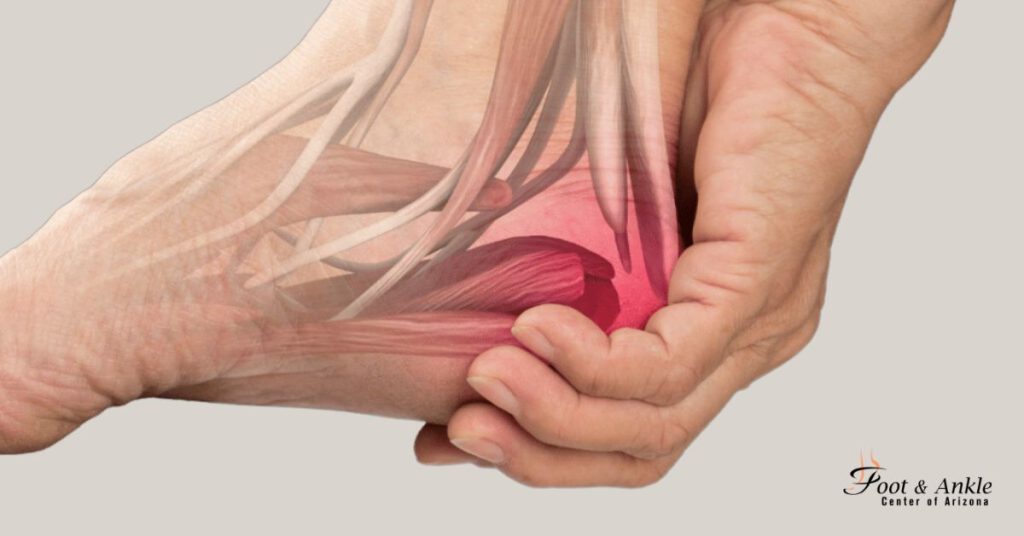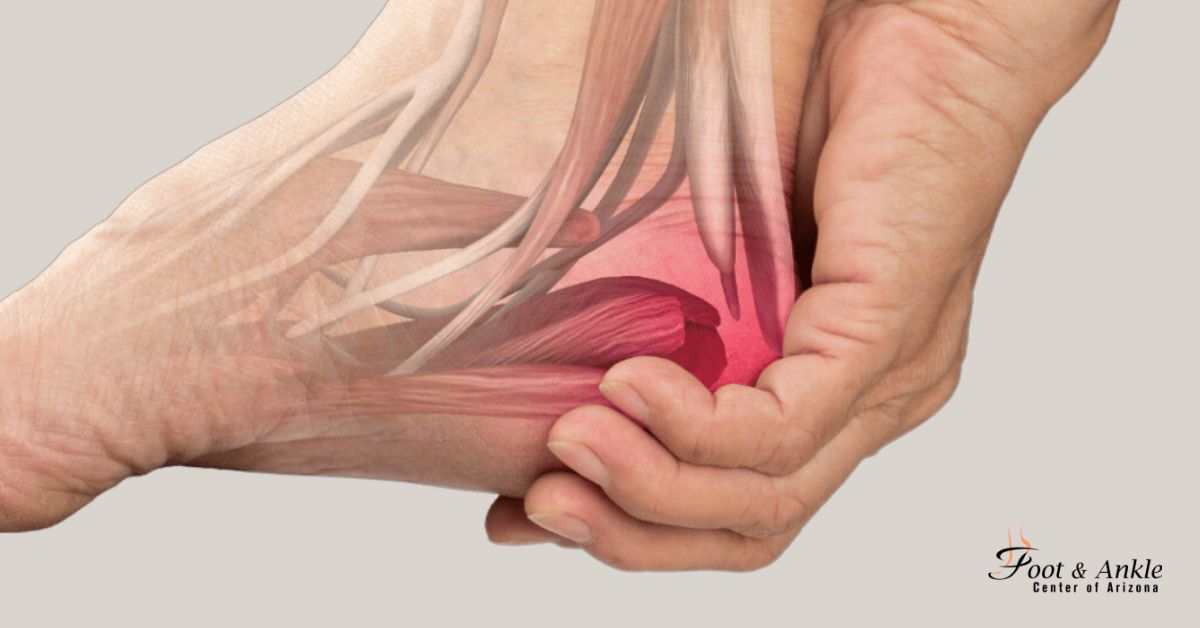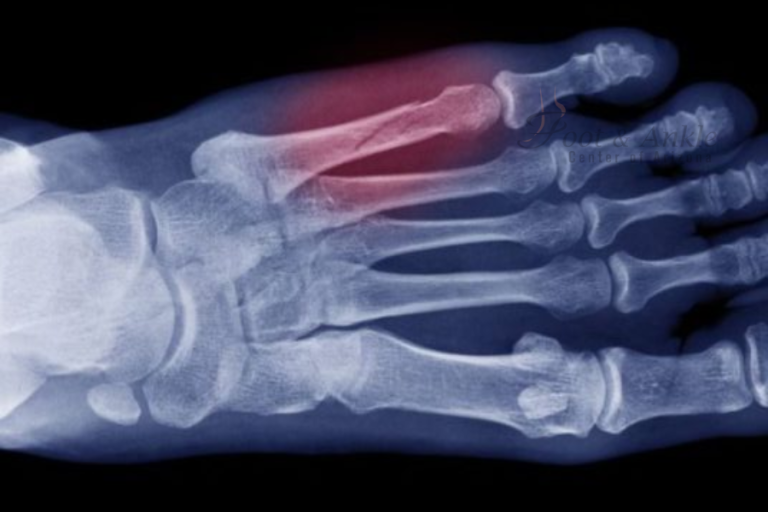Heel Pain or Plantar Fasciitis in the most common overuse injury we see in our clinic. The condition commonly arises after any number of insults to the ligament. A few of which are performing an activity which strains the heel ligament, wearing unsupportive shoes during athletic activity, or excessive walking barefoot/socks only.
Initial treatments include activity restrictions and resting the foot, wearing more supportive shoes, stretching exercises, anti-inflammatory medications and the use of an arch support. If caught early these simple measures should be able to resolve the condition. Failure to change your habits of barefoot walking, lack of changing old unsupportive shoes and not restricting aggravating activities can allow the condition to progress.
When Should I Seek a Heel Pain Doctor?
When your heel pain has failed to resolve with the initial treatments after 2-3 weeks it is best to seek a professional evaluation with a Foot & Ankle Specialist.
When you present for an initial evaluation there are many variables that are addressed such as your foot structure, shoe wear, activities, work, habits, previous treatment(s) and additional conditions both medically and orthopedic-related that may contribute to the heel pain. Standard radiographs are usually performed to evaluate for bony alignment, arthritis, and to determine any abnormalities, which may be present in the heel contributing to the pain.
In many situations where initial treatments have failed to help, it is imperative to have a clear view of the plantar fascia. This is most commonly accomplished with the use of diagnostic ultrasound. In many patients with recalcitrant pain, there is an abnormality that may only be visualized with advanced imaging techniques such as ultrasound. This tool is invaluable to diagnose, recommend treatment, and advance care to understand the full scope of the problem.
Without the direct visualization of the ligament, many initial treatments can be avoided and advanced treatment recommendations can be followed depending on the severity of the condition
What is the Best Heel Pain Treatment?
Some heel pain doctors, such as Dr. DiNucci, will commonly perform “cell-based” treatments to stimulate the body to heal itself. These treatments are directed to the specific area of need in the plantar fascial ligament. These ultrasound-guided treatments are much more effective as they are not a “blind injection” given to the heel but directed with precision to the area of greatest need.
Who Should I Contact In Order to Treat My Heel Pain in Scottsdale?
Having performed thousands of heel treatments, Dr. Di Nucci will not perform injections without ultrasound guidance to ensure they are directed where needed. There is a significant difference in the treatment for plantar fasciitis when the injured ligament can be followed closely with direct visualization of the healing process. (see below)
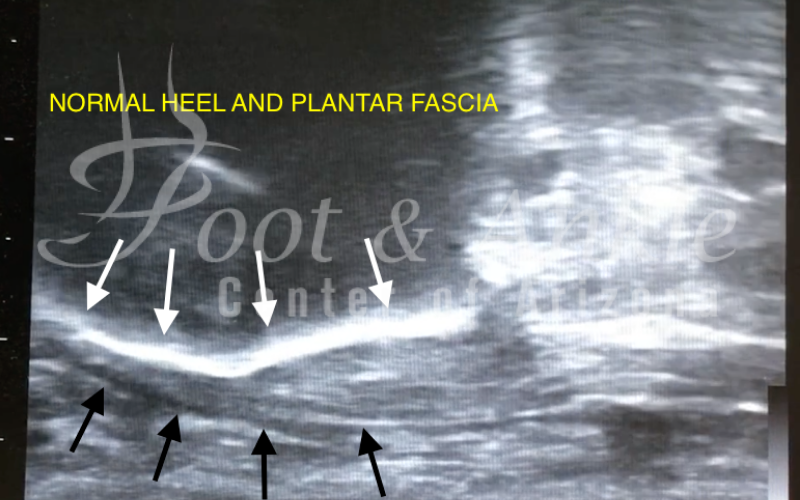
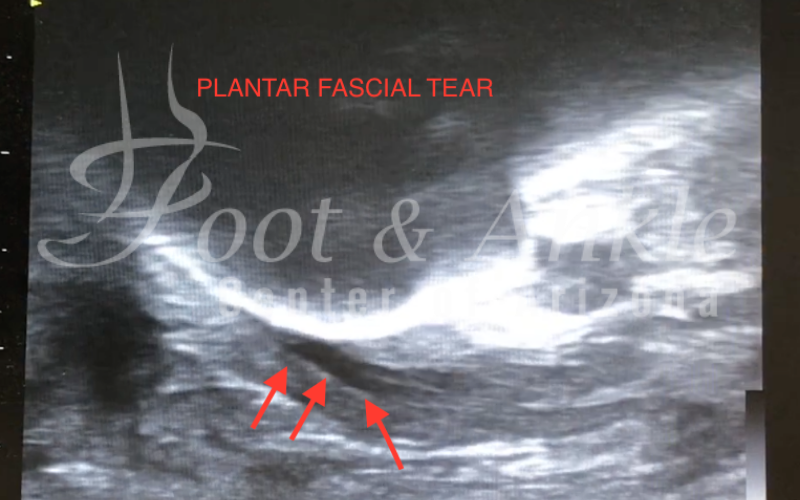
To learn more about your heel pain and see if this treatment is right for you, contact us at (480) 342-9999 to schedule a consultation today.
